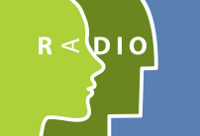ADL Recognition
RADIO presents a domestic assistant and home automation profile to the end-user, which most importantly acts as an unobtrusive health monitoring system.
Our envisaged end-users are elderly people. The ability to collect and analyse behavioural data can help doctors diagnose cognitive impairement symptoms early and take timely remedial action; the ability to do so while the end-users are able to maintain their independent life can prolong the time spent at home and improve their quelity of life. By making itself useful to the end-users, the RADIO Robot is able to unobrusively become part of their daily routine and collect observations relevant to iregarding activities of daily life (ADL) and mood, and use these observations to establish patterns and identify deviations. These can range from the time spent out of the house or carrying out a given activity in it, to sleeping patterns, walking speed, and ease of transferring out of beds and chairs.
RADIO developed ADL and mood recognition methods that analyse a variety of raw data including audio-visual data, range scans, and text from social media interactions. RADIO also developed and integrated methods for localizing people and objects in the environment based on Bluetooth Low Energy (BLE) beacons, people identification, and home automation device usage. This inventory of elementary methods will be fused into high-level recognition systems for activities such as meal preparation, cleaning up, using technology.
